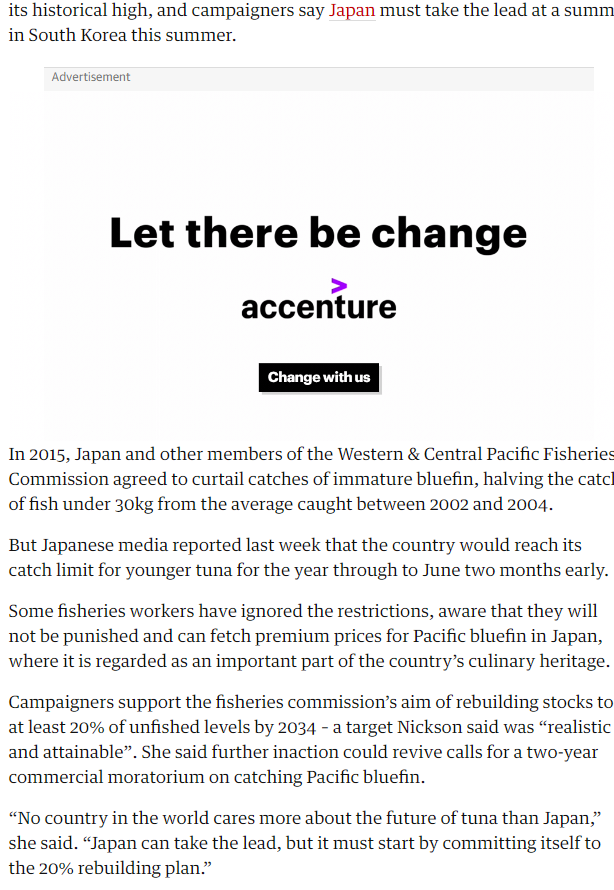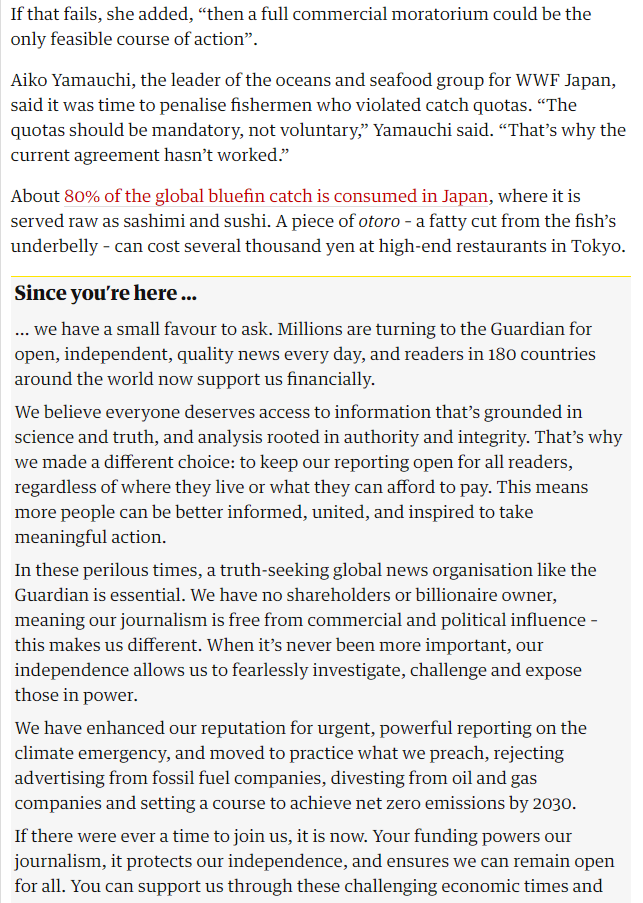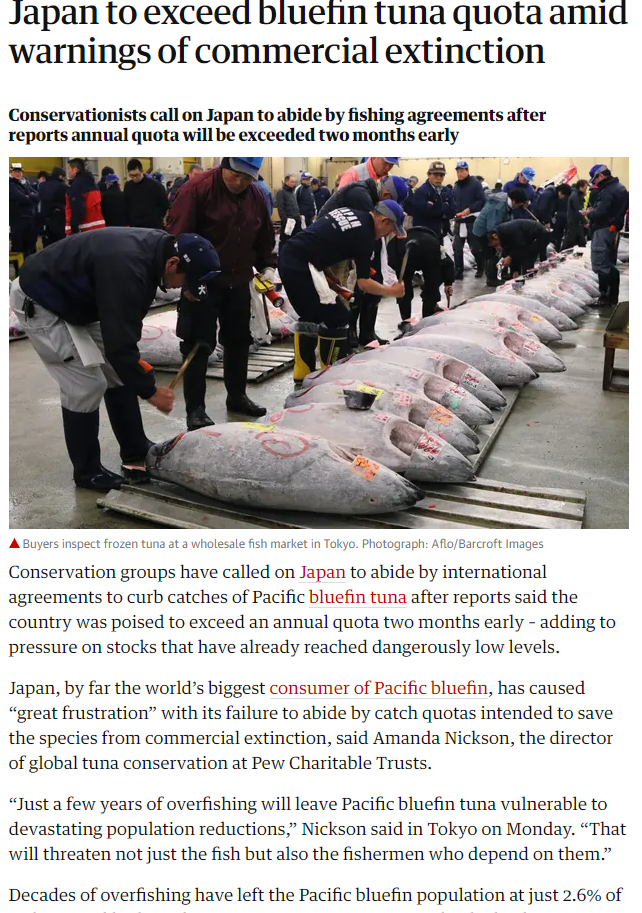- Discuss the main points and summarize the article (simple and short)
- How does this article relate to microeconomic? Basically, talk about the concepts (Common goods, overfishing, property rights, taxes, and international agreements). (simple and short that help me easy to understand, thank you)
its historical high, and campaigners say Japan must take the lead at a sum in South Korea this summer. Advertisement Let there be change > accenture In 2015, Japan and other members of the Western 8: Central Pacic Fisheries Commission agreed to curtail catches of immature bluen, halving the catcl of sh under 30kg from the average caught between 2002 and 2004. But Japanese media reported last week that the country would reach its catch limit for younger tuna for the yeaI through to June two months early. Some sheries workers have ignored the restrictions, aware that they will not be punished and can fetch premium prices for Pacic bluen in Japan, where it is regarded as an important part of the country's culinary heritage. Campaigners support the sheries commission's aim of rebuilding stocks to at least 20% of unshed levels by 2034 - a target Nickson said was \"realistic and attainable\". She said further inaction could reyiye calls for a two-year commercial moratorium on catching Pacic bluen. \"No country in the world cares more about the future of tuna than Japan,\" she said. \"Japan can take the lead, but it must start by committing itself to the 20% rebuilding plan.\" If that fails, she added, \"then a full commercial moratorium could be the only feasible course of action\". Aiko Yamauchj, the leader of the oceans and seafood group for WWF Japan, said it was time to penalise shermen who violated catch quotas. \"The quotas should be mandatory, not voluntary,\" Yamauchi said. \"That's why the current agreement hasn't worked.\" About 80% of the global bluefln catch is consumed in Japan, where it is served raw as sashimi and sushi. A piece of ororo - a fatty cut from the fish's underbelly - can cost several thousand yen at high-end restaurants in Tokyo. Since you're here we have a small favour to ask. Millions are turning to the Guardian for open, independent, quality news every day, and readers in 180 countries around the world now support us nancially. We believe everyone deserves access to information that's grounded in science and truth, and analysis rooted in authority and integrity. That's why we made a different choice: to keep our reporting open for all readers, regardless of where they live or what they can afford to pay. This means more people can be better informed, united, and inspired to take meaningful action. In these perilous times, a truth-seeking global news organisation like the Guardian is essential. We have no shareholders or billionaire owner, meaning our journalism is free from commercial and political inuence - this makes us different. When it's never been more important, our independence allows us to fearlessly investigate, challenge and expose those in power. We have enhanced our reputation for urgent, powerful reporting on the climate emergency, and moved to practice what we preach, rejecting advertising from fossil fuel companies, divesting from oil and gas companies and setting a course to achieve net zero emissions by 2030. If there were ever a time to join us, it is now. Your funding powers our journalism, it protects our independence, and ensures we can remain open for all. You can support us through these challenging economic times and Japan to exceed bluen tuna quota amid warnings of connnercial extinction conservationists call on Japan to abide by shing agreements after reports annual quota will be exceeded two months early _ F'_._...... ilr Buyers inspect Frozen tuna at a wholesale sh market in Tokyo. Photograph: AfloiBarCroit images Conservation groups have called on Japan to abide by international agreements to curb catches of Pacic bluen tuna after reports said the country was poised to exceed an annual quota two months early - adding to pressure on stocks that have already reached dangerously low levels. Japan, by far the world's biggest consumer of Pacic bluen, has caused \"great frustration\" with its failure to abide by catch quotas intended to save the species om commercial extinction, said Amanda Nickson, the director of global tuna conservation at Pew Charitable Trusts. \"Just a few years of overshing will leave Pacic bluen tuna vulnerable to devastating population reductions,\" Nickson said in Tokyo on Monday. \"That will threaten not just the sh but also the shermen who depend on them.\" Decades of overshing have left the Pacic bluen population at just 2.6% of









